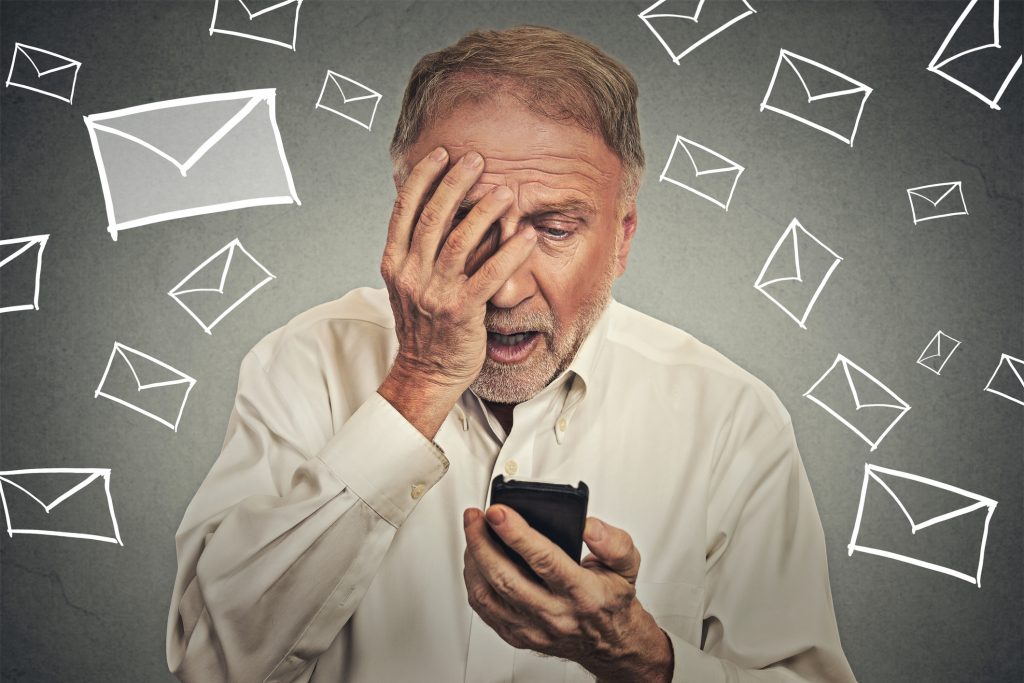Are You Wasting Too Much Time On Email?

“People forget how fast you did a job — but they remember how well you did it.” – Howard W. Newton
E-mail has made a big difference in the way we communicate. It’s made written correspondence easier and faster — and that’s the American dream!
I remember the old days and how employees used to line up outside my office door, waiting for me to put the phone down. Many of them waited futilely, only to give up and return to their desks — with their questions unanswered and their comments unheeded.
Nowadays, I am more accessible. On a typical workday, I get between 300 and 500 e-mail messages. About half of them require feedback. That’s a lot of interaction — a great deal more than in the old days.
More contact is generally good.
But — and you knew there would be a “but” — e-mail has its dark side. It can be an extraordinary waste of time.
I can say that from personal experience. Several years ago, after encouraging people to e-mail me with their problems, questions, and complaints, I found my e-mail overflowing with urgent messages. I’d open up my e-mail first thing in the morning and spend most of the rest of the day trading messages.
Two problems arose, both serious. First, I had no time left to get my own work done. Second, I ended up micromanaging discussions that were urgent but not terribly important.
Recently, at a retreat for managers of AGP, I discovered that three-quarters of them were on e-mail almost nonstop throughout the day. This came as a bit of a shock to me. I had naively thought that they would have figured out what I had figured out — that when it comes to e-mail, less is more.
Unless you absolutely must, don’t open your e-mail box more than twice a day. Once is best. Resist the urge to “keep up” with all the messages flying back and forth out there. Realize that in most cases, daily contact is plenty.
I’ve been limiting my e-mail activity to twice a day for more than a year — ever since KY first suggested the idea to me. It’s made a world of difference. If you get into the habit of opening up your mailbox more than twice a day, the following bad things may happen to you:
1. The number of e-mails you get will increase.
2. The ratio of important to unimportant messages will decrease.
3. You’ll find yourself in conversations that don’t really matter.
4. You’ll waste energy discussing issues that will resolve themselves.
5. People will begin expecting you to do their work, solve their problems, etc.
6. Your important-but-not-urgent tasks will not get done.
Ultimately, your e-mail in box will be your boss. It will dictate what you do and when. That is a very bad thing. You want to be your own boss. You want to be in charge of your schedule and the master of your own time.
Start tomorrow morning. Come in early. Create a task list. Make sure it corresponds to your goals. Before you open your e-mail in box, do something that’s Important-but-not-Urgent. Wen it’s time to read and respond to e-mail, do it in one or two specific blocks of time.
If you limit the time you devote to e-mail, it will be easier to figure out how much time you can devote to each message. The problem bottleneck that is running through your computer will gradually diminish. Pretty soon, you’ll be making progress again — running your day instead of letting it run you.
